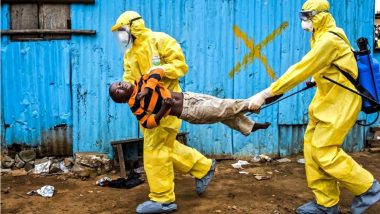Nairobi, September 22: The World Health Organization has accused Tanzania of failing to provide information on suspected cases of Ebola in the country, potentially styming efforts to curb the spread of the deadly virus.
The WHO said it had learned on September 10 of a suspected case of Ebola in Dar es Salaam, and information emerged that this patient's contacts had been quarantined, and that the person had tested positive for Ebola. Two other suspected cases were unofficially reported.
"Despite several requests, WHO did not receive further details of any of these cases from Tanzanian authorities," read a statement issued Saturday. Ebola Outbreak: Central Africa ‘Not Prepared’ to Fight the Deadly Viral Epidemic.
On September 14 Tanzanian authorities officially reported there was no Ebola in the country, but declined "secondary confirmation testing" at a WHO centre, the global body said.
Then on Thursday, the WHO was made aware that a contact of the initial patient was sick and in hospital.
"To date, the clinical details and the results of the investigation, including laboratory tests performed for differential diagnosis of these patients, have not been shared with WHO."
The lack of information received by WHO meant it cannot determine the possible cause of the illness, it said.
"The limited available official information from Tanzanian authorities represents a challenge for assessing the risk posed by this event."
The WHO determined that because the initial patient traveled widely in the country and due to uncertainty around the cases, the lack of information and the fact that, if confirmed, it would be the first-ever outbreak of Ebola in the country, "the risk was assessed as very high at national level".
East African nations have been on high alert over an outbreak of Ebola in the Democratic Republic of Congo, which has left 2,103 people dead. Four people were diagnosed with the virus in Uganda and later died.
The ongoing Ebola outbreak is the second-worst in history after more than 11,000 people died in Guinea, Sierra Leone and Liberia between 2014 and 2016.
But the containment efforts have been hindered from the start by conflict in eastern DRC, as well as attacks on medical teams tackling the haemorrhagic fever amid resistance within some communities to preventative measures, care facilities and safe burials.
(The above story first appeared on LatestLY on Sep 22, 2019 03:51 PM IST. For more news and updates on politics, world, sports, entertainment and lifestyle, log on to our website latestly.com).













 Quickly
Quickly


